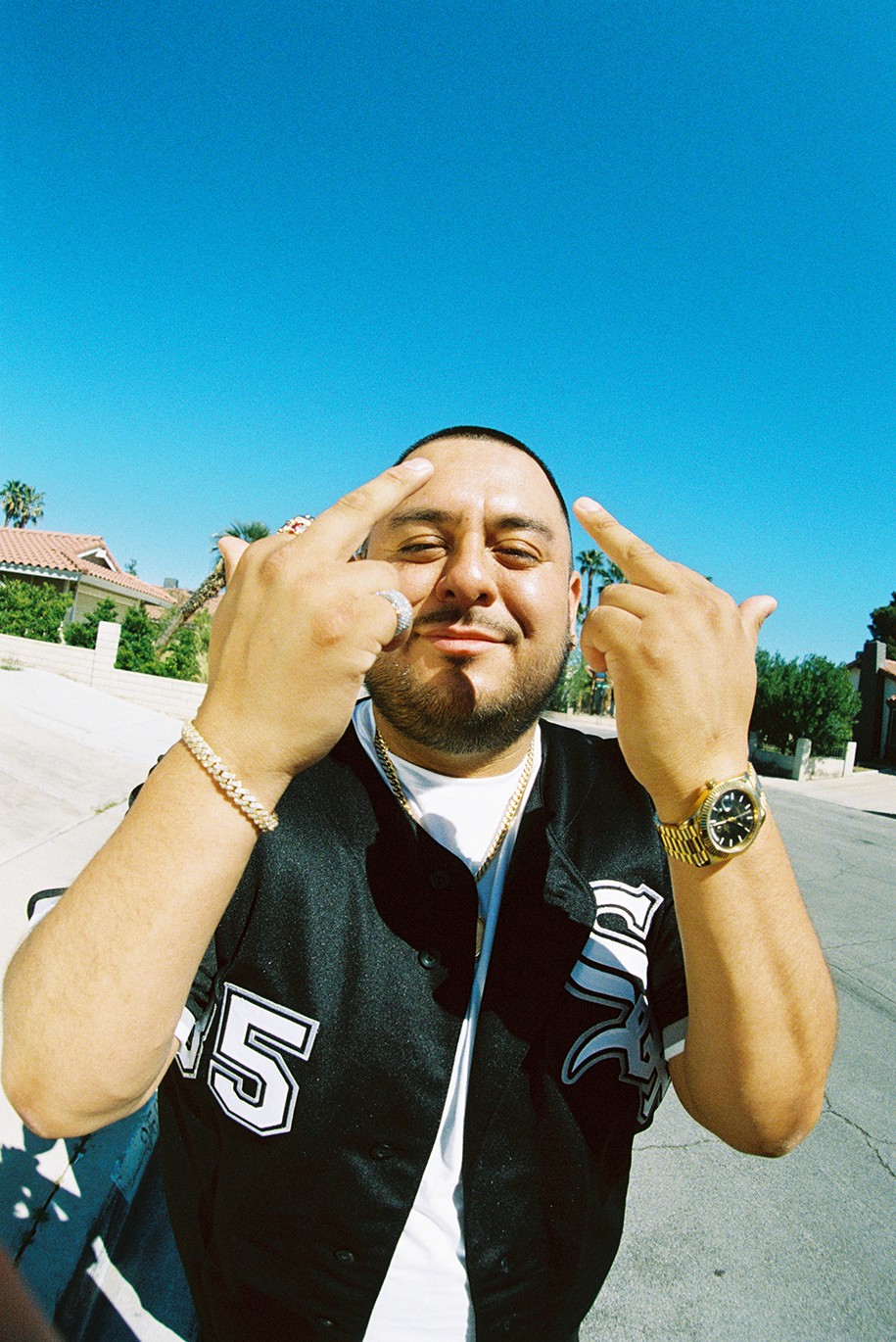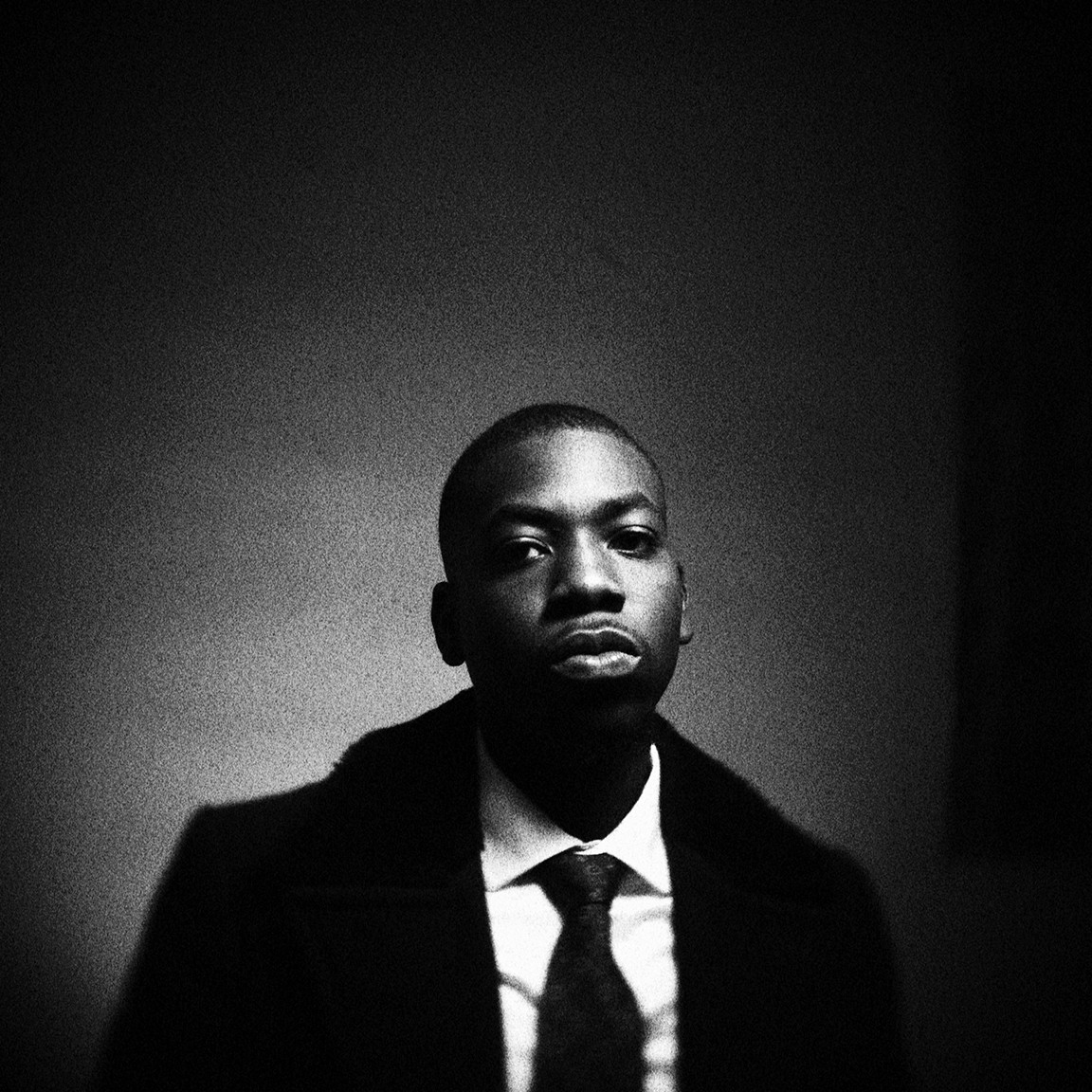Artist Interviews
Jan 29, 2025
Produced by: Tadeáš Jánoš
Edited by: Rudy Manager & Andrej Aroch
Skeete – From Caribbean Roots to UK Dancehall Stardom
In this exclusive Studio Talks interview with rising UK artist Skeete, we delve into the dynamic musical journey that has shaped his sound. From his childhood in a Caribbean household immersed in a rich blend of music to his evolution into an artist defining his own style, Skeete’s path has been anything but ordinary. In this candid conversation, he opens up about the pivotal moments that transformed him from a listener to a creator, exploring how personal challenges and a shift in focus from football to music ignited his passion for songwriting. Skeete also shares the story behind his unexpected hit “Tek Buddy,” the evolution of his creative process, and the deepening connection with his growing fanbase. This insightful interview was conducted by Tadeáš Jánoš via video call on January 15, 2025.
"I went from whispering lyrics in my living room to fans singing them back to me"
- Skeete
How did you get started in music, and what led you from being a listener to a creator?
To be fair with you, from when I was a kid, growing up in a Caribbean household music was the main thing. I think waking up and hearing music in the mornings—during breakfast time, on cleaning days—music was always something that was heavily present in my house. My older sister would always have UK garage, house music, and R&B playing in her room, and I’d often go in and listen as a child. There was so much going on. So I think even as a child, I was always surrounded by it. And to be fair, my sister was a singer too, so I always used to hear her singing and stuff. But honestly, at the time, I didn’t see it as something I’d pursue—it was just always there.
By the time I turned 16, my family went through some challenges, and a lot began to change. I was always a footballer from when I was a child until maybe 16. When life got challenging, and I stopped playing football around the same time, I realized I needed an outlet. I wasn’t sure what that outlet would be, but once I started writing music, it became clear that this was my path. From the moment I started, I never stopped.
When you first started making music, what did your process look like, and how has it changed now?
I started in my living room with a program called Audacity. I didn’t know much about it, but it was all I had before discovering Logic or FL Studio. I used Audacity and an iPhone 4. I'd record on the iPhone, email the audio to myself, drag it into Audacity, and look online for effects like reverb. Autotune didn’t come into play until years later. I was just learning the basics. I kept doing this in my living room, sending covers to my sister. Eventually, I posted one on social media, and people from London started commenting, saying I had talent. I used to sing John Legend and R&B, which is far from what I do now—but that’s where it all started.
At 16 or 17, I had my first studio session in Nottingham—that’s when I really started pursuing music. Back then, I just recorded whatever I felt. I didn’t have a process—just vibes. That’s still true today. If I connect with a beat, it flows naturally. If not, it either takes longer or doesn’t happen. The process hasn’t changed—it’s always about what I feel. To this day, I’ll hear a beat, step aside, and quietly whisper the vibe to myself. People know I stay quiet until I hit the booth, then the reaction is always, “Whoa, that’s what you were doing.” The process now is the same as back then: a natural, organic connection with music.

Is there a track that holds special meaning for you—one you created unexpectedly and now deeply connects with you?
“No More Love Songs” stands out to me. I always knew I could make music like that, but it took finding the right production team. The track has a nostalgic feel that reminds me of the music I grew up on.
Before releasing it, I questioned whether music was really for me. I was working a lot of nine-to-fives and felt disconnected from my audience. A conversation with someone convinced me to drop the song anyway. It went viral on TikTok, and that’s when I knew it was working.
That moment was surreal because I had almost stepped away from music. The response to the song lifted me up and showed me I was connecting with fans who wanted to hear my style of R&B. “No More Love Songs” will always be special to me.
“Tek Buddy” is another track that opened many doors, but both songs mark key moments in my journey. I love all my music, but those two tracks hold a special meaning for me.
Before releasing “No More Love Songs,” would you say that was the most challenging moment of your career so far?
No, I wouldn’t say that was the toughest moment of my career. Back then, a lot of what I felt was tied to life situations—working nine-to-fives, missing out on family holidays, and just life moments. It felt tough at the time, but once I broke through that first door, the real challenges began.
The pressure back then was about trying to break through, but once that happened, bigger problems came. More success brings more challenges. My toughest moments have been more recent, especially over the last year. With the success of “Tek Buddy” and tracks from Vibes Don’t Lie, new challenges naturally followed.
But I’ve pushed through, and I’m still here. Every struggle contributes to growth and longevity. The moment before "No More Love Songs" was about questioning if music was for me, but that was the last time I ever asked myself that. That, in itself, is a positive.
Did you have a moment with your fans when you realized you were starting to make it?
It all started with TikTok. I’m not the most social person—I’m actually an introvert—so connecting with fans was tough at first. I didn’t use TikTok as my main platform but as a way to genuinely connect. When my videos went viral and fans started commenting, it was amazing —some loved the sound, while others connected with the lyrics.
As I did more TikTok Lives, I realized how invested my fans were —especially when they started messaging me non-stop for unreleased music. Then, when I began opening for artists like Dexta Daps and Shenseea, I noticed fans were showing up for me too—sometimes even more than for the headliners. That’s when it hit me: I was really connecting with my fans.
TikTok was just the start. Now, I’m focused on creating more moments with my fans and deepening that connection. There’s so much more to come.

You’ve mentioned being introverted—how do you balance that with the need to express yourself both in the studio and on stage?
I’ve always been introverted, especially when I started. In the studio, I prefer working alone or with just the engineer. When I was younger, I’d even ask people to leave so I could focus better. Over time, I realized this profession requires stepping out of my comfort zone and being more extroverted.
Performing was where I had to push myself. Early on, when no one knew me, I’d sing to the crowd rather than having them sing back to me. I wasn’t comfortable on stage and, being critical of myself, only enjoyed it if the crowd was vibing with me.
Those early, less energetic moments were essential. They taught me how to perform for unfamiliar audiences and helped me appreciate great reactions when they happened. I’m still not the biggest fan of being on stage, but I love when the crowd gives back their energy—singing the lyrics and showing love. That’s when it really clicks, and I feel like I’m resonating with them.
Balancing the introverted and extroverted sides of being an artist is a process. I still enjoy creating alone, but I’m learning to express myself more on stage and in front of people. The combination of both experiences makes me a better artist.
What are your future plans? Where do you see yourself in five years?
In the music industry, it's tough to predict exactly where I’ll be, but my vision has always been big and long-term. Five years ago, I pictured myself here—but also imagined being much bigger. The journey’s been humbling, and I’m proud of what I’ve achieved so far.
Over the next five years, it’s more about proving what I’m capable of than focusing on where I’ll be. Life’s full of things people don’t see, and I want to prove to myself what I can accomplish. I definitely see myself releasing my first album, performing at bigger venues, and headlining shows and arenas. The music will never stop, and I’m passionate about it.
I’m already getting emotional messages from fans about how my music affects them, and I want to reach even more people on a larger scale. In five years, I want everyone to know who I am, to have them say, “I know Skeete, I love Skeete, and I’m coming to see Skeete.” My goal is for more people around the world to discover and connect with my music. As I grow, I also expect to express myself more and let go of the life challenges that have held me back. At 25, I’m getting better at handling those things, and with that, I hope more positive energy comes through in my music.
Thank you for being with us today, Skeete. If you have any final words for your fans, this is the time.
Watch out for my new mixtape dropping in the next couple of months. I’m not revealing the title yet, but for now, just know it’s “EML.” Skeete is on the way, and once I’m there, there’s no stopping me. I genuinely appreciate my fans. Thank you for having me.
Follow Skeete on Instagram: @skeete_music
More Blog Posts
See our latest blogs















